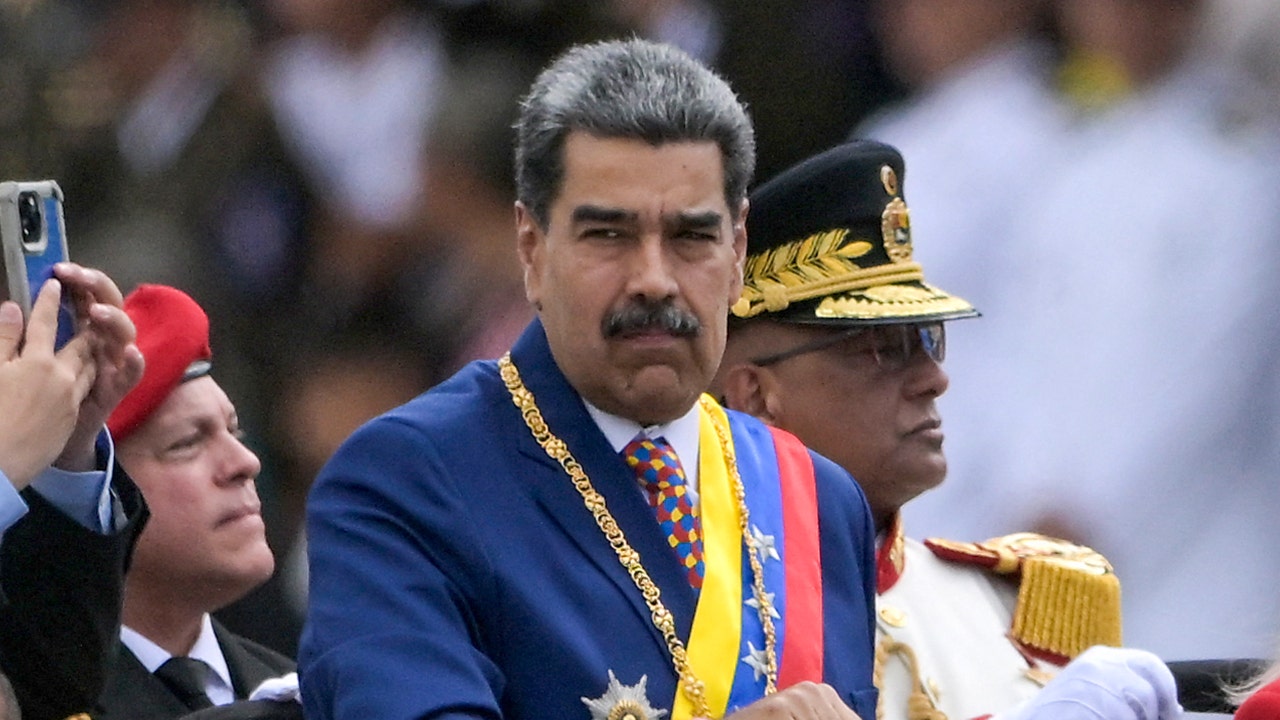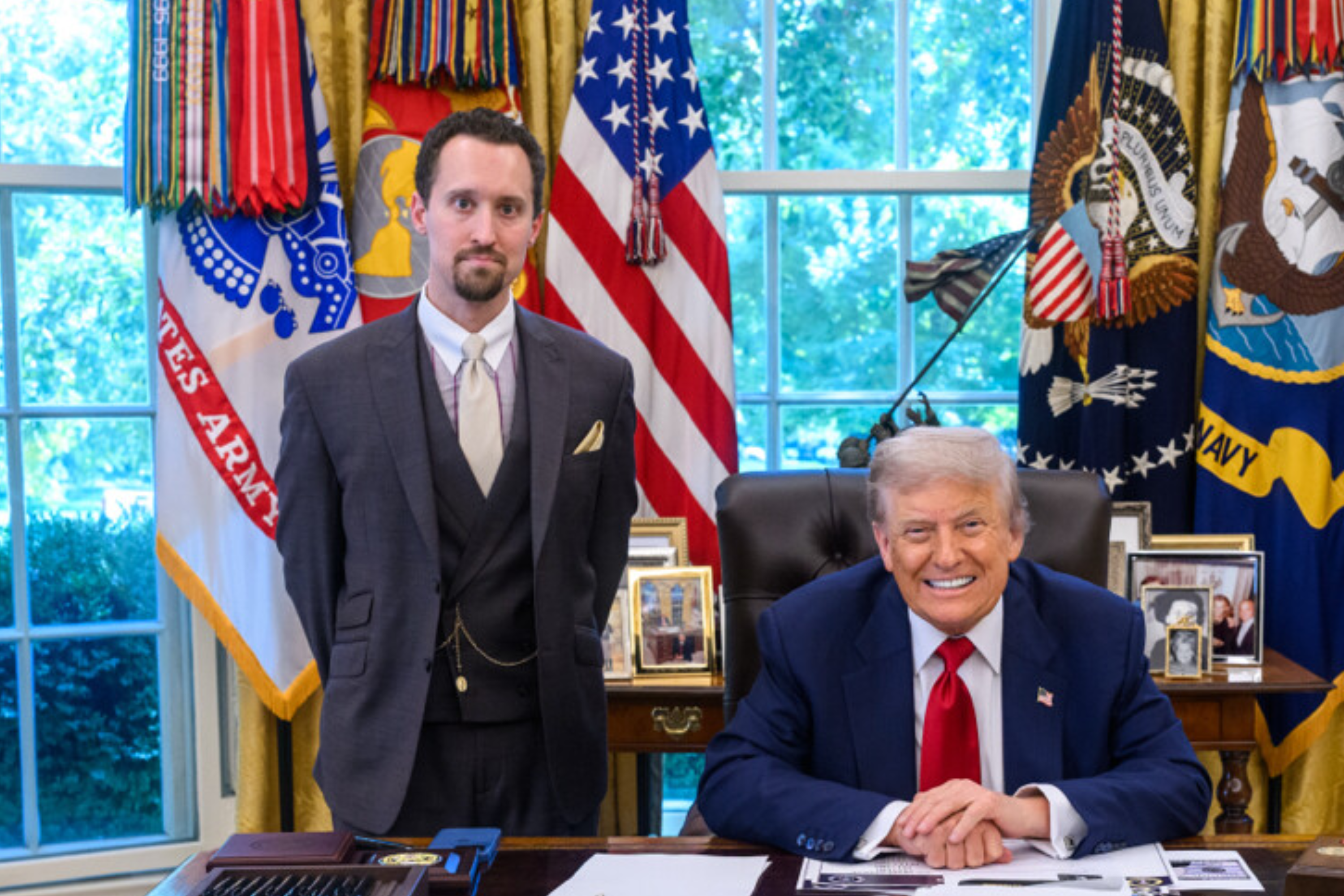Historically, President Donald Trump and Russia’s President Vladimir Putin have enjoyed a very special relationship ― at least if you’re viewing it through Trump’s perspective.
Mikhail Svetlov / Getty Images
As far back as 2013, Trump was envisioning a friendship with the Russian authoritarian leader, whose allegiance to Trump has proved more ambiguous through the years.
“Do you think Putin will be going to The Miss Universe Pageant in November in Moscow — if so, will he become my new best friend?” Trump, the beauty pageant’s then-owner, tweeted in June 2013.

Later, Trump praised Putin as “a big hero in Russia” and “a man so highly respected within his own country and beyond.” (CNN has a more exhaustive list of Trump’s effusive remarks about Putin, if you’re into that sort of thing)
Putin has spoken admiringly of Trump here and there, including a compliment about Trump behaving like a “real man” after an assassination attempt last year.
But many, including former U.S. National Security Advisor John Bolton, believe Putin sees Trump as “an easy mark” on the global stage.
“As a former KGB agent, Putin knows exactly how to manipulate him,” Bolton told the Kyiv Independent in March. (Of course, all of this is complicated by multiple investigations that have documented Russia’s interference in the 2016 U.S. presidential election, which Trump won. Putin has denied any tampering.)
Related: 18 Major Global Events That American Media Is Ignoring Right Now, And Why They Actually Matter To Us
That very brief history brings us to the current day: Nearly four months into his second term, Trump’s arguably one-sided bromance with Putin has apparently soured. Trump has become increasingly disillusioned with his political BFF as Putin continues to refuse to negotiate a ceasefire with Ukraine.

Handout / Getty Images
“I am not happy with the Russian strikes on KYIV. Not necessary, and very bad timing. Vladimir, STOP!” Trump wrote in a widely mocked Truth Social post last month.
On Sunday, after Putin launched the largest aerial attack of Moscow’s three-year full-scale war on Ukraine, Trump again criticized the Russian leader.
“I’ve always had a very good relationship with Vladimir Putin of Russia, but something has happened to him. He has gone absolutely CRAZY!” Trump wrote on Truth Social. “He is needlessly killing a lot of people, and I’m not just talking about soldiers. Missiles and drones are being shot into Cities in Ukraine, for no reason whatsoever.”

Related: “I Am So Torn With What You Are Doing” — 11 Posts From MAGA Business Owners Who Are So Close To Getting It
Then came Putin’s response, which couldn’t have gone over well with Trump. Trump seemed to be experiencing “emotional overload,” the Kremlin mused ― the geopolitical equivalent of telling your wife she sounds crazy in the middle of an argument.
What’s going on with these two? Is the honeymoon stage over? Was there ever much of a bromance to begin with? To untangle all of this, we reached out to Tracy Ross, a couples therapist in New York City, who characterized Trump and Putin as very much a toxic couple.
For years, Trump unhealthily idealized and even seemed to aspire to be like the Russian strongman leader, Ross said. It didn’t seem to register for Trump that the relationship was unrequited.
“He seemed to exhibit denial in order to maintain his version of who Putin is and what their relationship was,” she said. “Trump acted like someone with blinders on – rose-colored glasses, defending Putin’s intentions and reasoning.”
The way he continuously expresses alignment with Putin’s positions — even making the audacious claim that Ukraine started the war ― mirrors an unhealthy relationship dynamic (not to mention, puts the U.S. at risk).
“The stakes are different but the dynamics are similar,” Ross said. “In a toxic or unhealthy relationship dynamic, one person ignores, justifies or reasons away the behavior of the other that is damaging and even destructive.”

MIKHAIL KLIMENTYEV / SPUTNIK/AFP via Getty Images
Trump held tightly to his trumped-up, idealized version of Putin because he believed he was equally admired and respected by the other man, and that his loyalty would allow him to influence Putin’s actions.
That doesn’t seem to be the case, which may come as a surprise to Trump, but not to outsiders, which — again — mirrors an unhealthy relationship dynamic “when the world sees what you don’t because you are too far in it, or invested in your version until something breaks through the denial,” Ross said.
While it does appear that Trump is finally waking up when it comes to all things Vlads, the tone he’s taking lately is the opposite of strong or statesmanly. Those Truth Social posts speak to Trump’s insecurity and need for approval and validation.
“The ‘Vladimir, STOP!’ statement is oddly childish and groveling,” Ross said. “It’s the way you would speak to someone you are very familiar with and close to. He’s trying to express his disapproval and yet hoping to maintain the perceived relationship, the emotional attachment he has to Putin.”
It won’t be effective, because Putin doesn’t need the approval and validation the way Trump does, Ross said.
The Kremlin’s “emotional overload” comment is a classic deflective response. It’s textbook gaslighting, but then again, so was Trump calling his buddy “absolutely CRAZY” earlier this week.

BRENDAN SMIALOWSKI via Getty Images
“Neither one is taking any accountability or trying to gain clarity,” Ross said.
“If this were a therapy setting, we would work on being interested in how they are impacting one another, trying to get them each to take responsibility instead of escalating, and trying to find resolution instead of upping the ante and continuing to place blame,” she explained.
In a marriage, these kinds of petty and small interactions would only lead to more fission. In a geopolitical bromance, the same could be said ― but then it wasn’t much of a bromance to begin with.
“Friendship requires reciprocity, taking each others’ feelings and points of view into account, a back and forth, a give and take, and mutual respect and regard,” she said.

Mikhail Svetlov / Getty Images
The Trump-Putin rapport always felt asymmetrical and politically imbalanced, with Putin gripping the lion’s share of the power.
“Trump often praised or defended Putin, while Putin remained measured or even condescending. There was admiration but it was one-sided,” Ross said. “Given that this was more of a fantasy bond than an actual bond, a friendship reconciliation is unlikely to happen.” This article originally appeared on HuffPost.
Also in In the News: People Can’t Believe This “Disgusting” Donald Trump Jr. Post About Joe Biden’s Cancer Diagnosis Is Real
Also in In the News: Miss USA’s 2024 “National Costume” Has Been Revealed, And It’s Obviously An Interesting Choice
Also in In the News: One Body Language Expert Spotted Something Very Telling When Donald Trump “Held His Own Hand” At His Recent Press Conference













